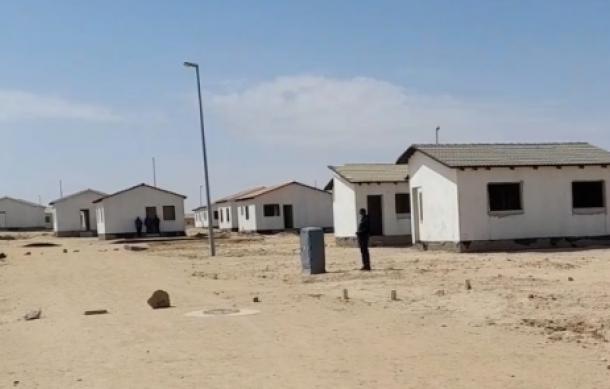
Over 500 Swakopmund residents will now be able to own decent housing as the Swakopmund Municipality will embark on a process through which land ownership will be awarded to them.
This is part of the Swakopmund Municipality’s target to decongest 17,000 or more residents from the DRC informal settlement.
The project, which will benefit residents, mainly those living in the town’s informal settlements of DRC Proper and DRC Wagdaar, will commence early this year, according to the town’s Chief Executive Officer, Archie Benjamin, in his new year’s message.
According to Benjamin, the municipality is finally in a position to implement its structure and strategic plan in 2023.
"Council took key implementable decisions that will ensure that we provide land ownership to people in these informal settlements and construct low-cost houses through programs such as Build Together, the Shack Dwellers Federation of Namibia, and public-private projects in DRC Proper Extension 25. The municipality will also provide services to Extensions 41 and 42 of DRC Wagdaar and continue to provide access to water, electricity, and improved sanitation in our informal settlements," he expressed.
The construction of 1,500 houses commenced in the town in 2021 through the Build Together program, and over 150 beneficiaries have already benefited from it, with the first and second phases of construction having been completed in 2021 and 2022, respectively.
In addition to this, about 50 houses have also been constructed in Matutura under the 40/40 project.
The finalization of more than 300 houses under the Mass Housing Program is also underway.
The project commenced in October 2022 after a new tender was awarded to the New Era Construction Investment Company after over seven years of standing incomplete.
The houses are part of the 505 incomplete houses that were contracted to Ferusa under the national Mass Housing Development Program.
The 319 incomplete houses at Matutura are scheduled to be completed in 18 months, with 111 of those envisaged for completion within six months.
Over 30% of the town’s population is currently living in shacks.





